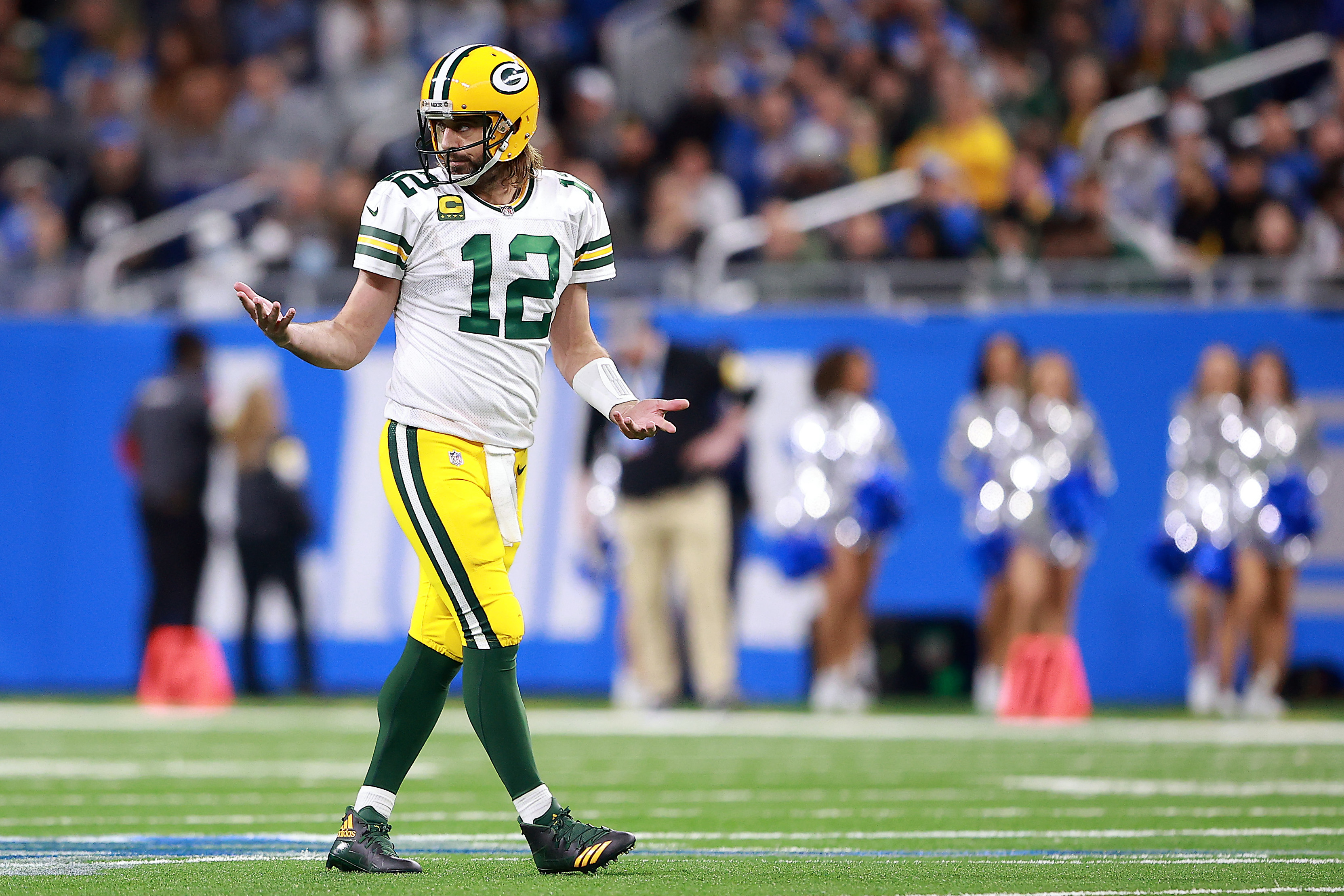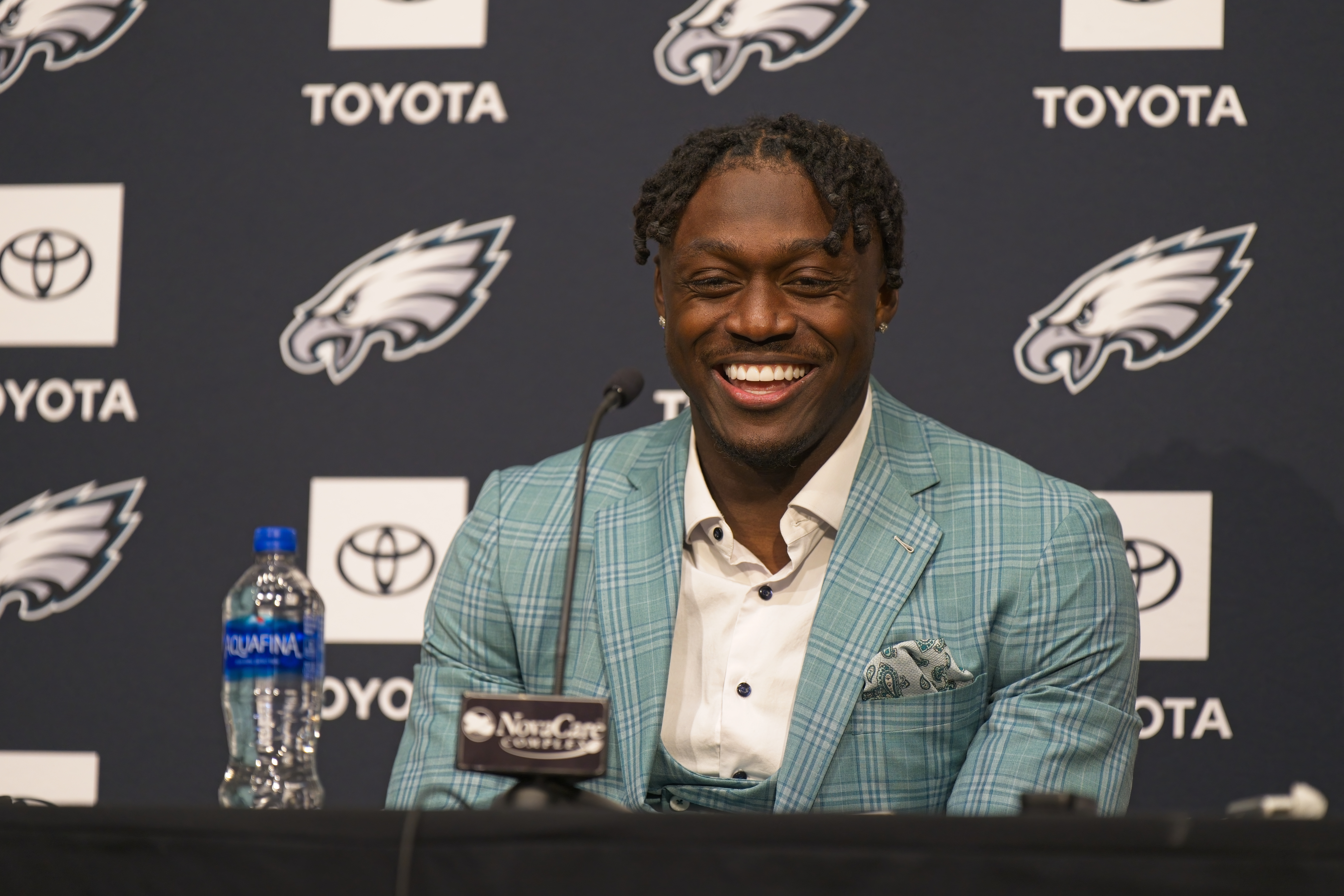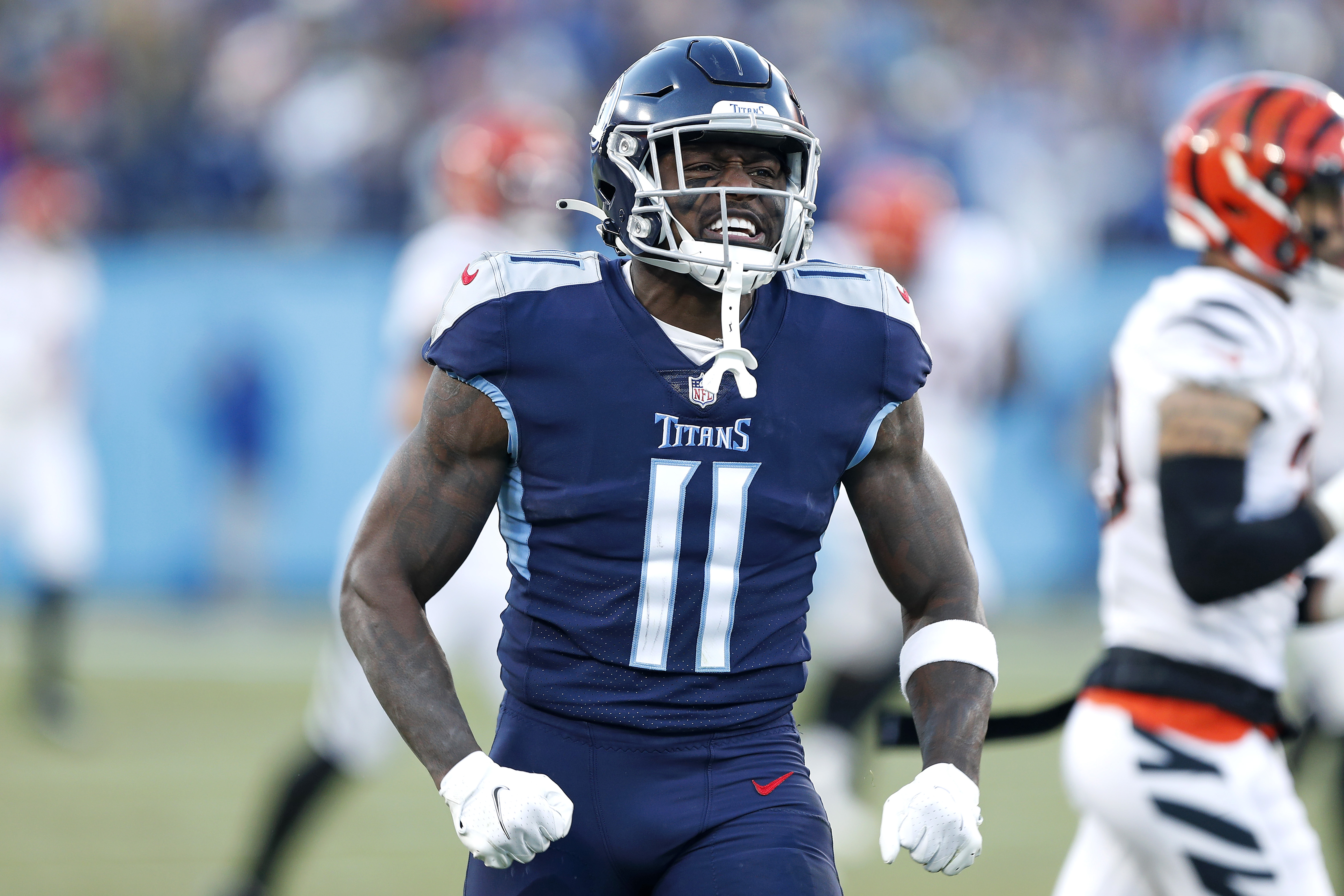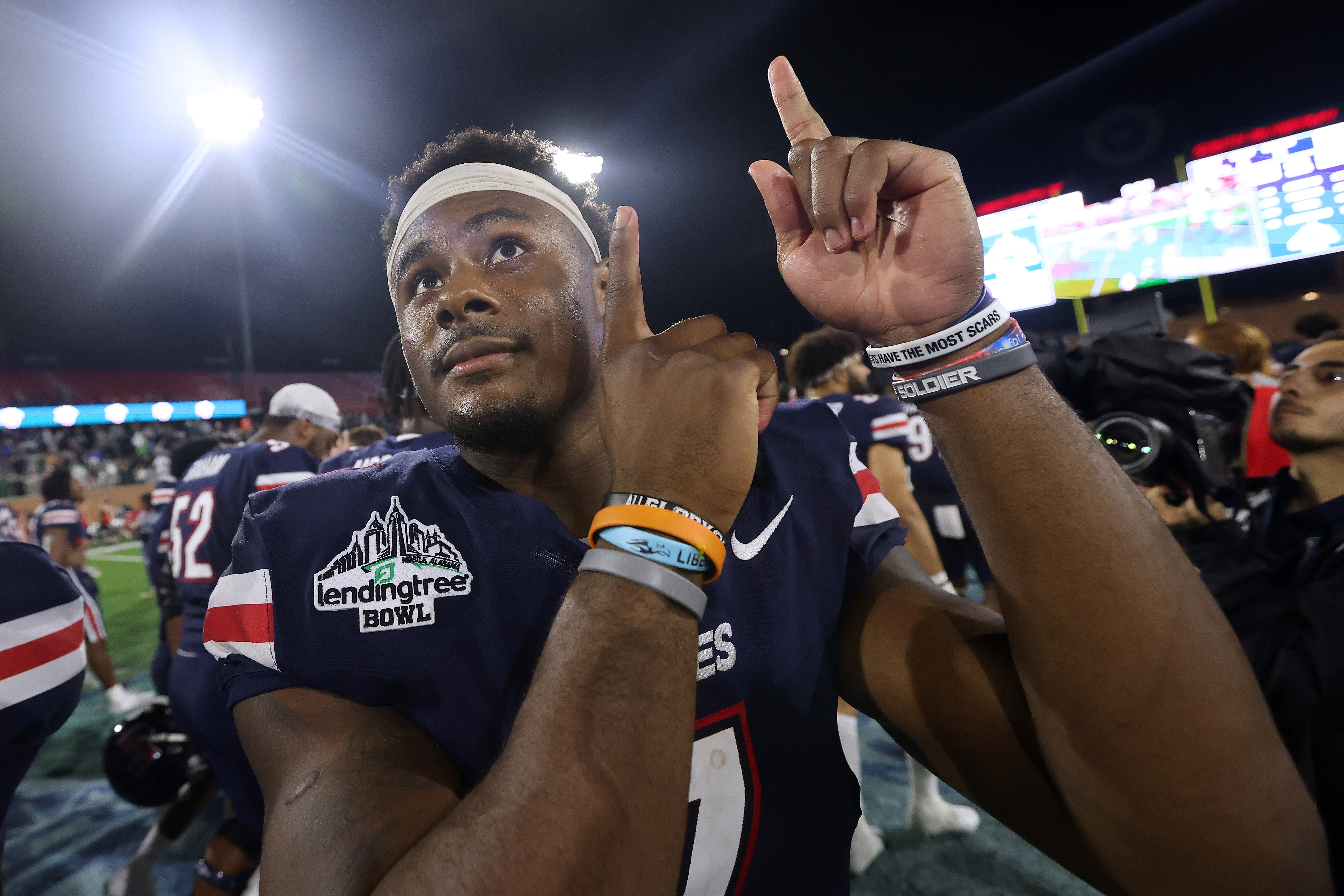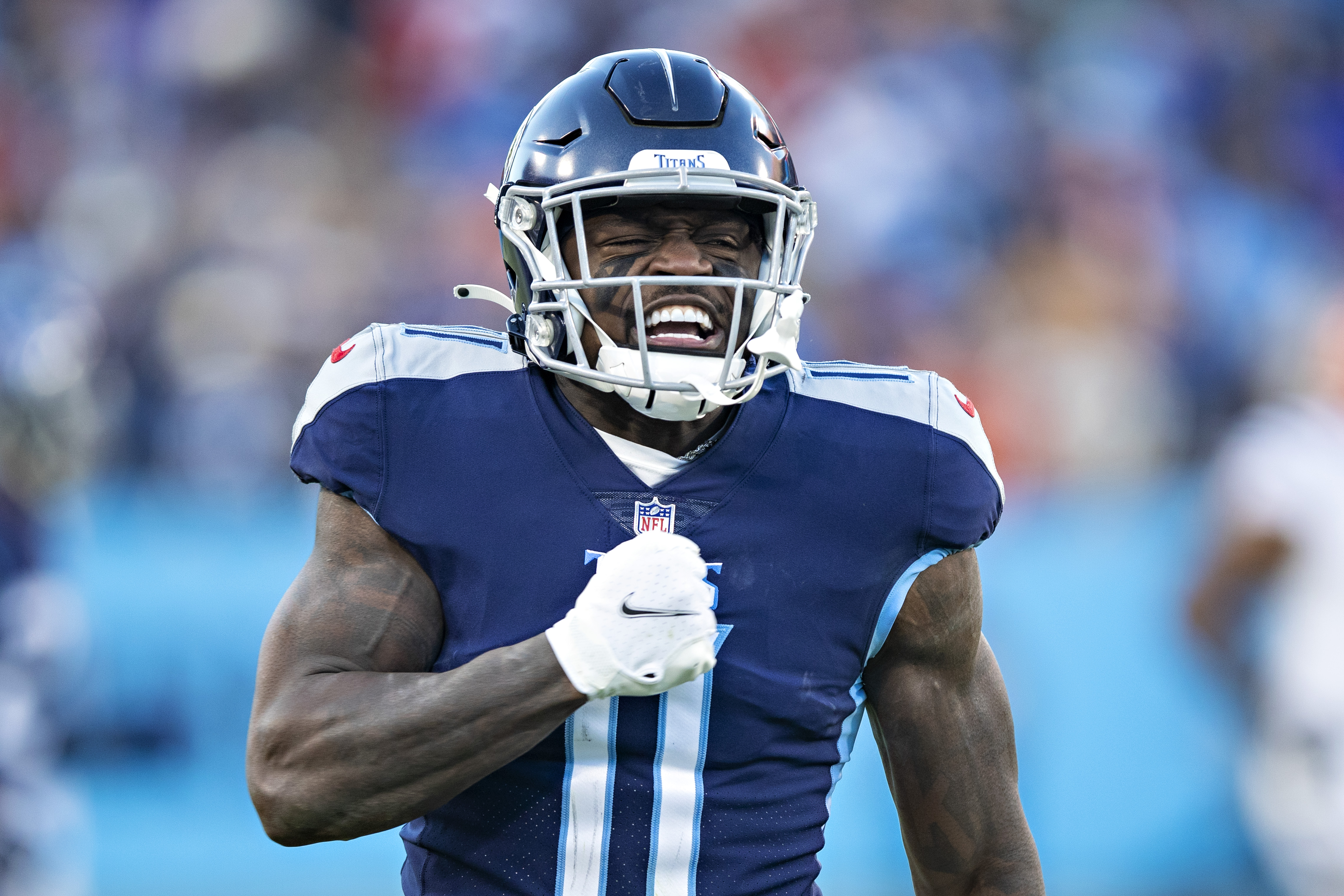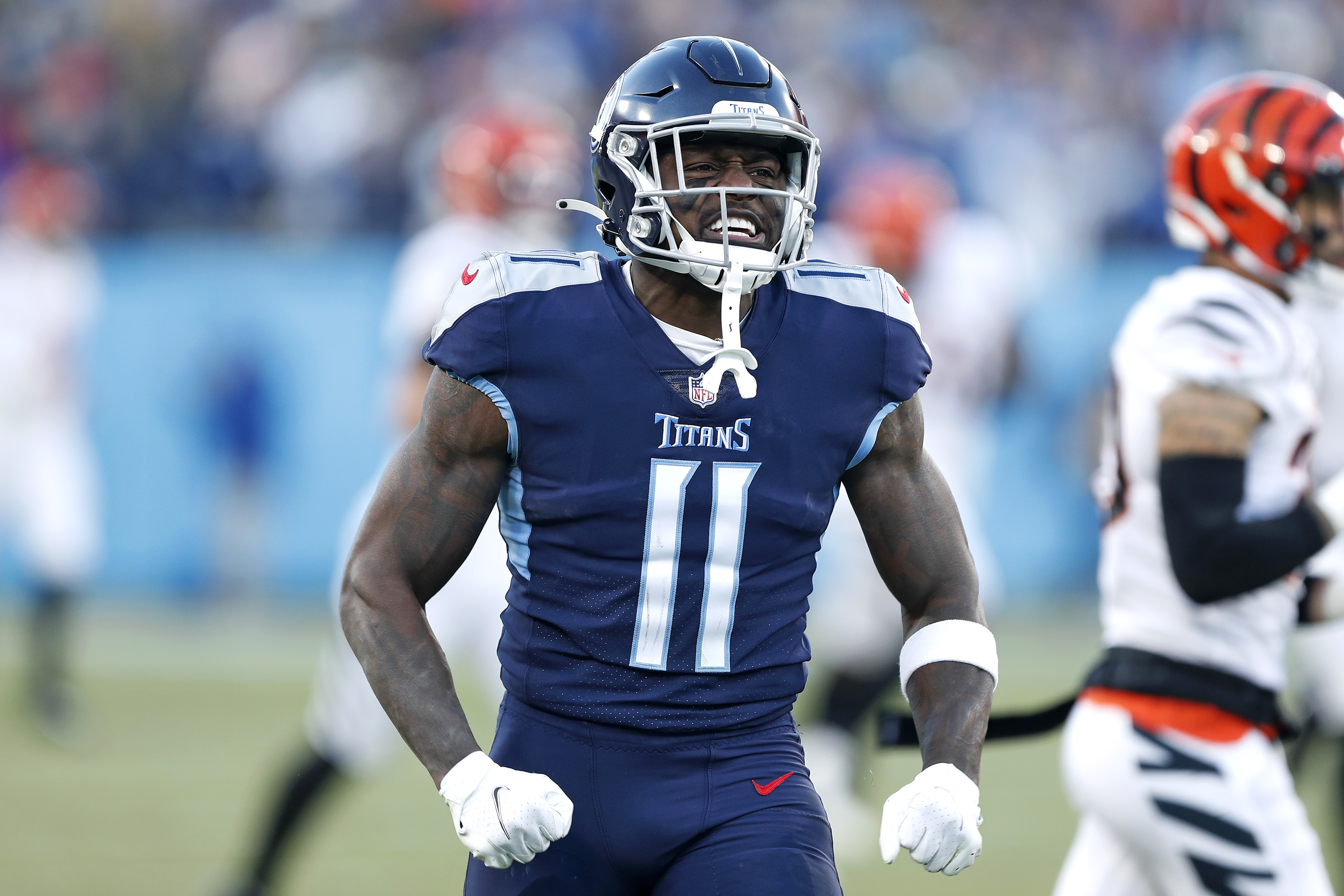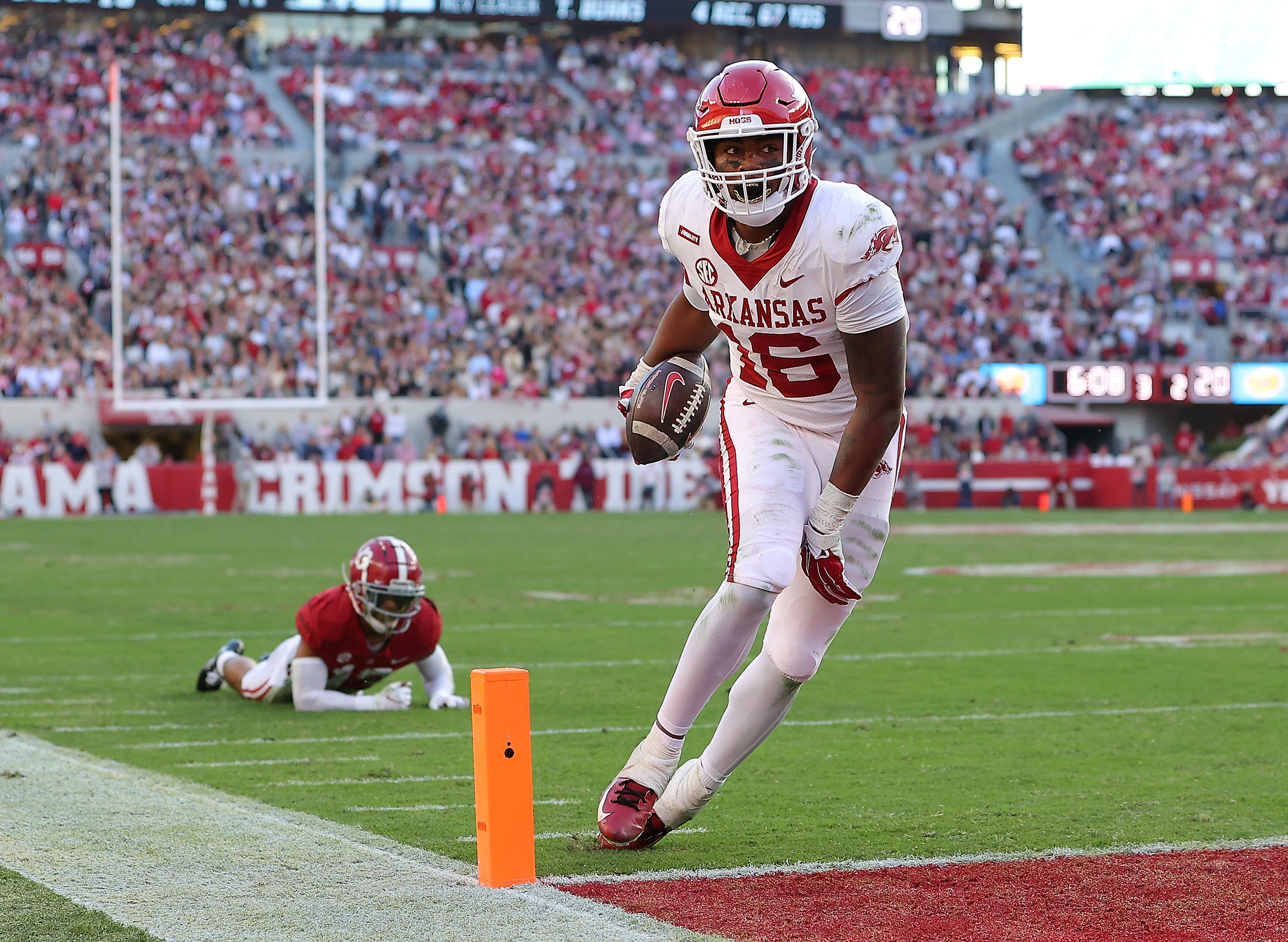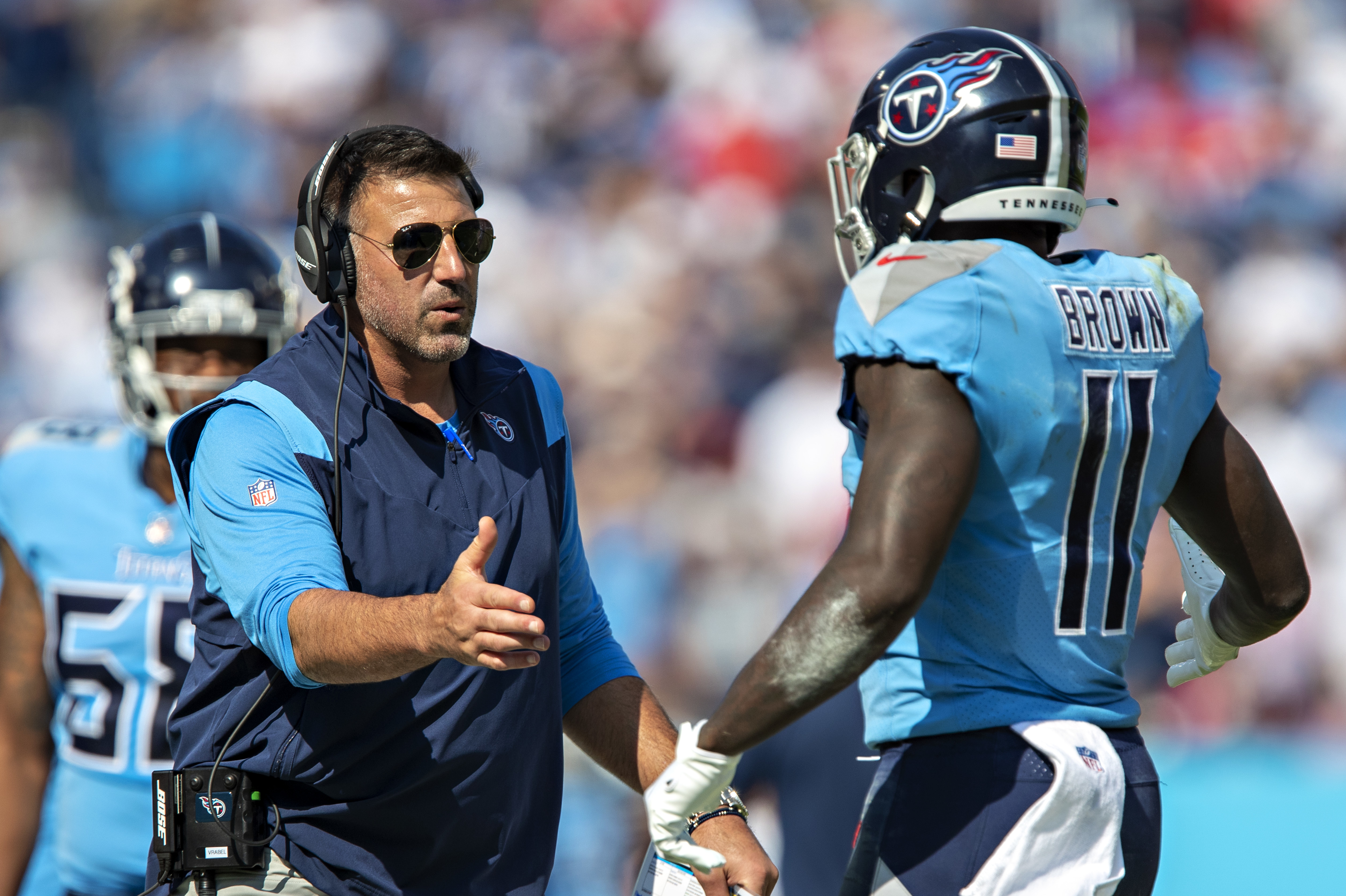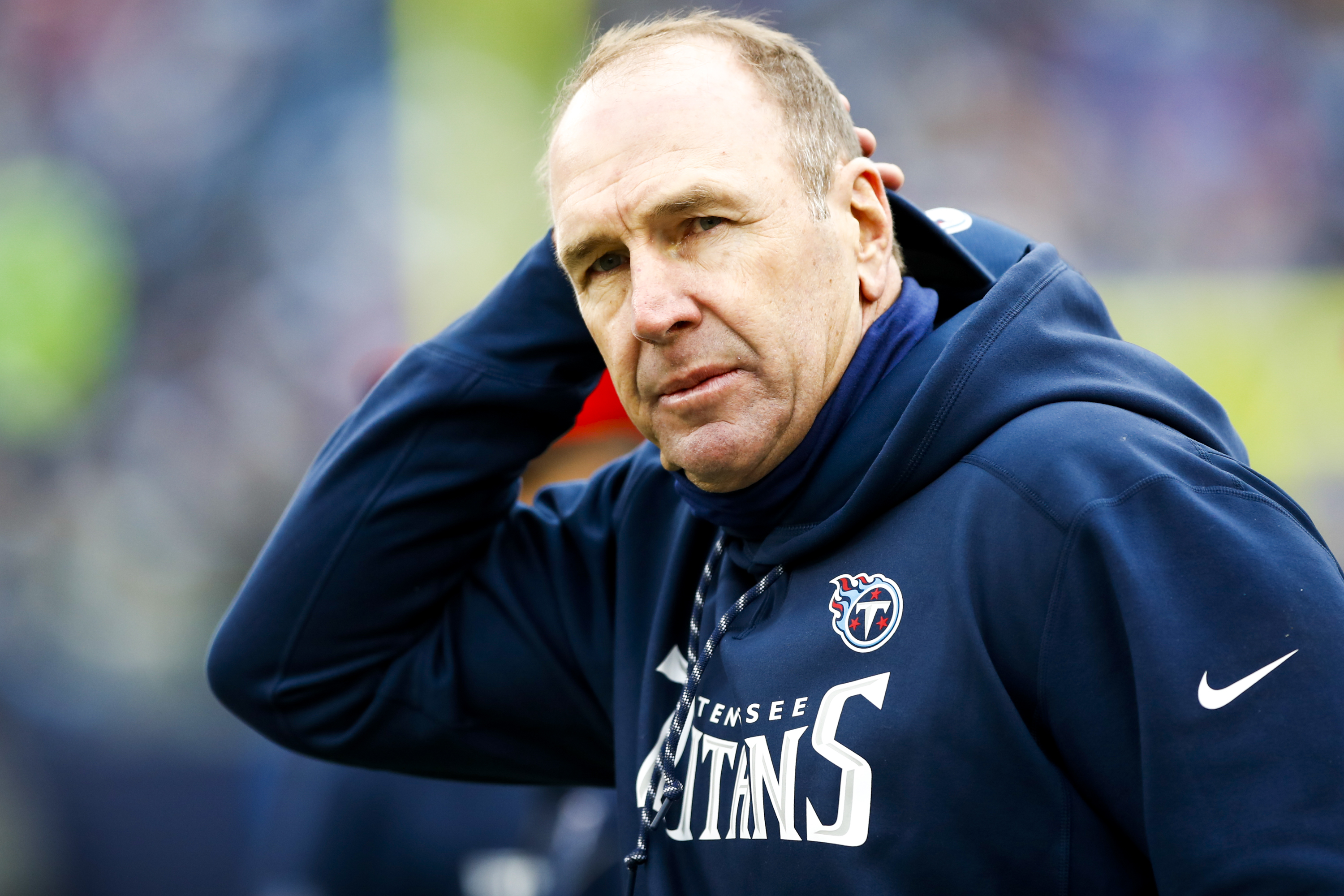Tennessee Titans Rookie Malik Willis Is a Threat to Take Ryan Tannehill's Job

What someone says isn't always as important as how they say it.
During voluntary team activities, reporters asked Tennessee Titans quarterback Ryan Tannehill how he can help third-round pick Malik Willis. His defensive response indicated he's threatened by the idea of losing his job to the rookie.
"We're competing against each other. We're watching the same tape. We're doing the same drills," Tannehill said. "I don't think it's my job to mentor him. But if he learns from me along the way, then that's a great thing."
Insert eyeball emoji.
To be fair, nothing Tannehill said was wrong. The two will be in the same quarterback room, learning the same things and competing. Nothing in his contract says he must mentor his counterpart. In the NFL, an individual plays as long as their team can't find a better or cheaper alternative. It's clear Tannehill remembers how he came into his position.
Some differences exist, though. Tannehill, a first-round selection himself in 2012, displaced 2015 No. 2 pick Marcus Mariota after Tannehill was traded to Tennessee in March 2019. The Miami Dolphins had given up on him. So, he knows what it's like to take someone's job and likely sees a similar pattern.
The way in which Tannehill responded said everything about his insecurity after the Titans chose Willis with the 86th pick.
Some may say too many are reading far too much into Tannehill's response. Jimmy Garoppolo endured a comparable situation last year when the San Francisco 49ers traded for the No. 3 pick last year, giving up two first-round selections and a third-rounder and then drafting his eventual replacement.

"You come into this NFL career and start as the young guy. I came in, Tom [Brady] kind of showed me the ropes," Garoppolo said when asked about being a mentor on Keyshawn, Will and Zubin (h/t ESPN's Nick Wagoner). "The competition between us was awesome. It really made me grow as a rookie and a young player. Me and Trey [Lance] will mold our relationship into that. It'll happen naturally. You can't force anything. Let it come as it may."
Similar questions. Similar answers. Completely different tones.
The NFL can be cutthroat. No one denies how difficult and taxing the business aspect of professional football can be. But there's something to be said about leadership, particularly at the quarterback position, and how it permeates an organization. Quite a few current and former players had plenty to say about Tannehill's response and how it reflected poorly on his status as a team leader.
"If you don't want to mentor I get it," LeSean McCoy tweeted, "but don't call yourself a good teammate. If anything happens to you and he needs to replace you let's pray he is prepared. Winning is the only stat that matters if you are a good teammate."
Hall of Fame quarterback Kurt Warner added, "I will never understand the 'I'm not here to mentor the next guy' mentality."
Saints cornerback C.J. Gardner-Johnson, who's not shy about making his feelings known, went as far as to say he hopes Willis takes Tannehill's job.
Then again, former Titan Jonnu Smith rightly stated that it's a competitive league. Competition should make a player better. If it doesn't, he shouldn't be in that spot. With that mind, Tannehill could have a difficult time holding off Willis depending on how the latter picks up the system and develops based on the opportunities available to him.
Willis' developmental curve is the crux of the setup.
The dual-threat option was viewed as a first-round prospect because of his talent. No one in the quarterback class presented as much upside, not even Kenny Pickett, whom the Pittsburgh Steelers chose with the 20th pick and was the only first-round signal-caller.
Willis is an elite athlete with the arm to threaten every blade of grass.
"To me, he's the No. 1 guy in the class," an AFC general manager told NFL Network's Tom Pelissero. "And for whatever people want to talk about in terms of readiness or all this other stuff—it was the same thing with Josh Allen, it was the same thing with Patrick Mahomes. I think people are a little short-sighted with that kid."

An NFC coordinator agreed: "He's the only one with the talent level that deserves [to be picked in Round 1]. Now, there's some holes in his game. [But] to me, he's a better prospect than Trey Lance was a year ago and a better prospect than Justin Fields was a year ago."
An AFC coordinator said, "If I had to take a quarterback this year, I would take Willis, because at least he's got the talent to get himself out of a jam when things don't look pretty."
If so many believe in Willis, why did he fall into the third round? Simple: a steep learning curve.
The comparisons provided to Pelissero are interesting, and not just because two of them involved the game's best. Rather, the timing in those scenarios could provide a template for Willis and the Titans.
Allen started out of the gate. But Mahomes and Lance barely played during their rookie seasons. Even in Allen's case, he needed years of guidance while playing in the same system to fully harness his capabilities.
Tannehill shouldn't be worried that Willis will take his job at the onset of camp because the likelihood of that is basically nil. Willis needs time to adjust. While that is true of all rookie signal-callers, Liberty's offense under the direction of head coach Hugh Freeze did Willis no favors.
The Flames didn't have talent around Willis. The scheme wasn't comparable to nearly anything in the NFL. Pocket pressure forced him to make things happen far too often. Willis even struggled to make the correct reads and decisions. Everyone sees his potential but understands he's a work in progress. That makes Willis the class' most intriguing quarterback prospect, as an NFC coach told Pelissero:
"If there's any of them that you're going to look back and say he turned into a really difference-making player at the position, the one guy that has a chance to do that is probably the Liberty guy. But there's also a chance that he just doesn't develop as a passer the way he's going to need to and he flames out. He's got a wide range of ways that his career could go. But he's a guy that you see some special plays on tape with, stuff you can't coach—off-schedule production, extending the play. He's an outstanding runner. He'll be a top-five runner, maybe a top-three runner at the position from day one. And then he's got all the arm in the world. It's just going to be about whether he can hone that in and learn to play the way a team's going to need him to play in the pass game, just in terms of decision-making and playing fast."
Willis landed in one of the best possible situations, even if the same can't be said for Tannehill. Willis won't have to deal with the pressure of being a first-round pick and face of the franchise. He won't be thrust into the lineup. He can sit back, take his reps and learn, even if the veteran in front of him isn't eager to help.

Tennessee offensive coordinator Todd Downing could tailor portions of the offense to Willis' skill set and take advantage of his athleticism and strong arm as early as training camp. The Titans can sprinkle in run-pass options and designed packages to get Willis on the field. As he learns and grows, Willis can work his way into a bigger role, specifically a starting opportunity.
Willis' growth potential is enormous. Every season, the importance of quarterbacks working off-platform and outside of structure becomes more important. Willis is special in that regard. But his upside is only half the equation.
Tannehill's time is running short.
The 10-year veteran will turn 34 in July, and his contract only runs through 2023. If Willis shows promise this season—on the field or in practice—the organization can release Tannehill next offseason and save $17.8 million, per Over the Cap. If it waits until after June 1, that figure will balloon to $27 million.
Tannehill deserves credit for providing consistency and stabilizing the franchise. Even so, the Titans' trajectory plateaued because they don't feature the caliber of quarterback play needed to compete with the AFC's best, no matter how many wins they rack up in the regular season.
Running back Derrick Henry is the star of the show. Willis could provide something unique alongside the game's premier workhorse as yet another running threat who can bring extra defenders into the box and then throw over the top in play action.
The Titans lack dynamic traits. Willis can bring those. He simply needs time. As such, Tannehill knows his time is limited, and he reacted like someone who already knows his fate.
Brent Sobleski covers the NFL for Bleacher Report. Follow him on Twitter, @brentsobleski.

